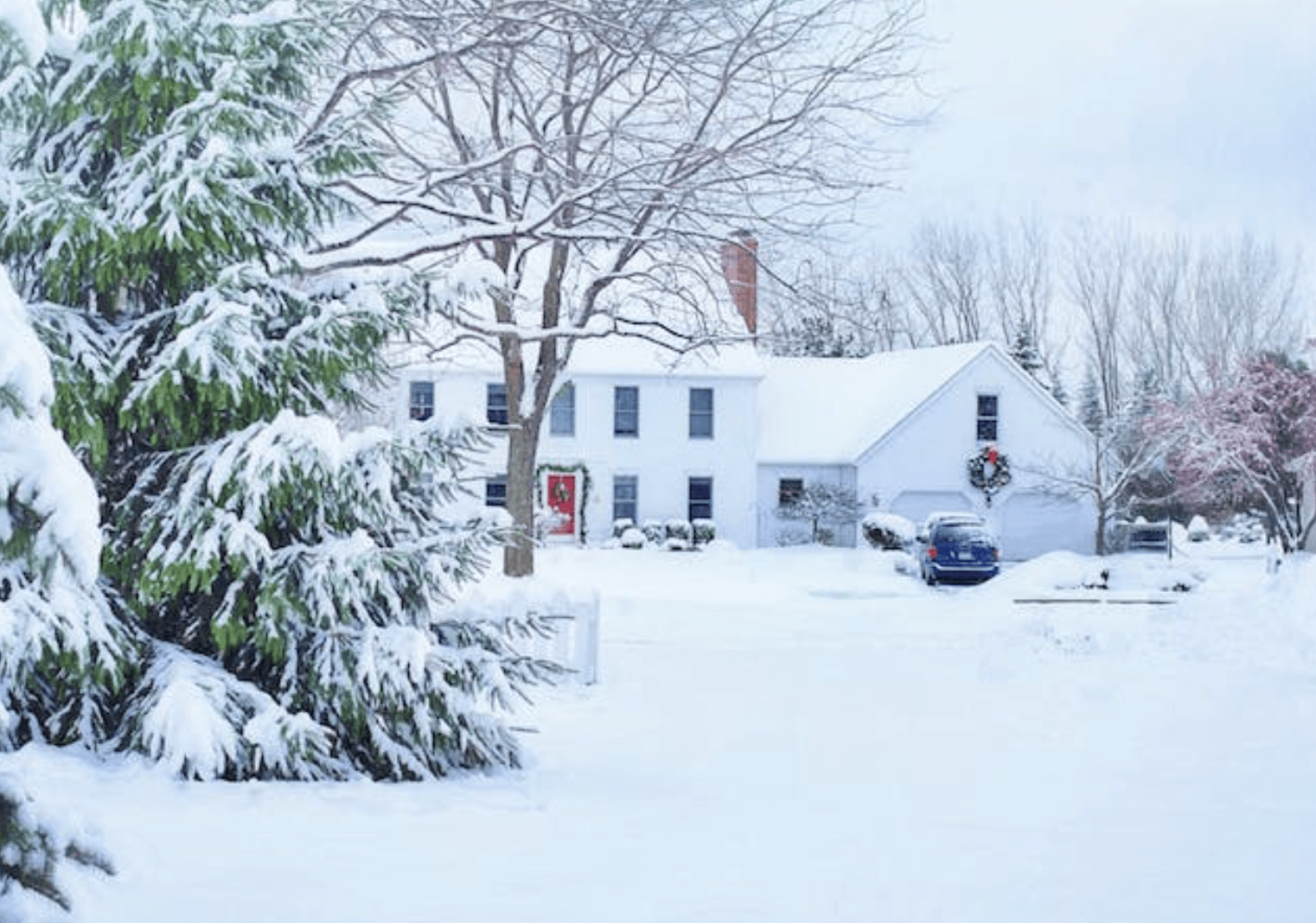
Making Sure Clients Understand How Winter Weather Can Impact Their Home
 For most parts of the country, winter is the season that can cause the most damage to a home. From heavy snow sitting on rooftops for weeks to ice dams in gutters causing water to seep inside a home to falling tree limbs and cracked concrete, there are plenty of things a homeowner needs to be aware of, and prepare for, when it comes to dealing with harsh winter weather.
For most parts of the country, winter is the season that can cause the most damage to a home. From heavy snow sitting on rooftops for weeks to ice dams in gutters causing water to seep inside a home to falling tree limbs and cracked concrete, there are plenty of things a homeowner needs to be aware of, and prepare for, when it comes to dealing with harsh winter weather.
After all, if there’s an existing issue on the exterior of your prospect’s home, winter’s crazy weather will make it worse. So, it’s your job to educate your prospects about the impact harsh winter weather can have on their homes. Here’s a brief refresher in case you need it.
How Winter Weather Affects a Roof
A home’s roof is its primary source of protection from the elements, but if a homeowner isn’t careful or prepared, winter’s rough weather can damage it. Winter can hurt a roof in several ways, including:
- Freezing rain or fast fluctuating temperatures can cause an ice dam to form in the gutters, which will prevent water from being dispersed away from the home. The water needs to go somewhere and usually, this will be inside the home where it can cause moisture damage, mold, and a weakened roof.
- Heavy snowfall and enduring freezing temperatures can result in heavy snow sitting on a roof for weeks on end. The extra weight of the snow can lead to a variety of roof problems. Homeowners should never try to remove the snow using a snow shovel or rock salt/calcium chloride, or they could wind up damaging their shingles.
- Although not as common as the previous two factors, heavy winds can also be a problem in winter. Wind can cause shingles to loosen or fly off and it can cause weak tree limbs to break off and fall.
How Winter Affects Concrete
Concrete is an excellent material for use on a driveway or walkway, but if it has cracks or it wasn’t laid properly, then it can become a major headache for a homeowner in the winter. The reason is because winter in most parts of the country sees temperatures fluctuating wildly. It can be 32 degrees one day and 55 degrees the next. Unfortunately, when the temperature rises above freezing the snow and ice starts to melt and the resulting water finds its way into any cracks in the concrete. Then, when the temperature falls back below freezing, the water freezes and expands, thus widening the crack.
Winter weather can also cause problems called scaling and spalling. Scaling is when the thin outer layers of the concrete start to peel away. Spalling, on the other hand, is when the cracked areas of the concrete slab have delaminated from the substrate.
How Winter Affects a Home’s Siding
Along with the roof, a home’s siding plays an important part in keeping its interior safe, protected, dry, and warm. If the siding has any cracks or holes, however, water can seep inside and cause a world of potential problems, from mold to electrical problems. They will also compromise the home’s insulative properties and cause the heat to kick on more frequently than it should.
Winter’s wet weather can also cause unsightly algae, mold, and mildew to form on the surface of the siding. This can ruin a home’s curb appeal and make spring cleaning a much more frustrating and time-consuming task.
How Winter Affects a Home’s Plumbing
Uninsulated plumbing pipes in a home’s colder spaces, like the garage or basement, can easily freeze in the winter. The problem is, when the pipes freeze, they usually burst and this can cause a lot of water damage in a home if the break occurs overnight when the house is sleeping. To help reduce this risk, all the pipes in these areas should be wrapped in heat tape or foam pipe insulation. In high-risk areas or on extremely cold nights, it is also helpful to leave the cabinet doors under sinks open, so warm air can reach the pipes, and to leave the faucets turned on with a slow drip to keep the water moving in the pipes.
How Winter Weather Affects a Home’s Basement
Basement flooding can happen at any time of the year, but in the winter, it’s not uncommon for melting ice and snow to be the culprit. The best way to prevent winter basement flooding is to check the sump pump to make sure it’s working correctly and to ensure that all the outdoor drains are free of clogs before a snowstorm hits.
Get Access to High Quality Home Improvement Leads Today
Finding prospects who are interested in having home improvement projects completed isn’t always easy. It can take a lot of your company’s time and resources just trying to connect with viable leads. But at RGR Marketing, we can provide you with a comprehensive list of home improvement leads that your sales team can get right to work converting.
RGR Marketing has been a leading provider of purchased leads for more than 20 years, so we know what it takes to curate high-quality leads. Our leads are pre-scrubbed and verified for accuracy, so you don’t have to worry about wasting time on dead leads, duplicate leads, incorrect data, or incomplete contact information. Let RGR Marketing provide you with the home improvement leads you need to keep your work schedule filled with profitable projects.
To learn more about the benefits of purchasing leads, contact RGR Marketing today.
Start making more
money today!
Search Categories
Tags
Tag Cloud
Latest from Twitter
Contact Us
Call us at 310-540-8900 or fill out the form below and we’ll tell you how you can get high quality leads for free*.
* Get up to 10% free leads on your first order!